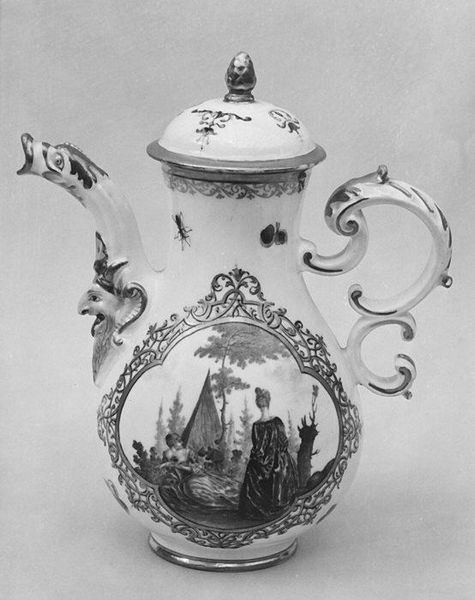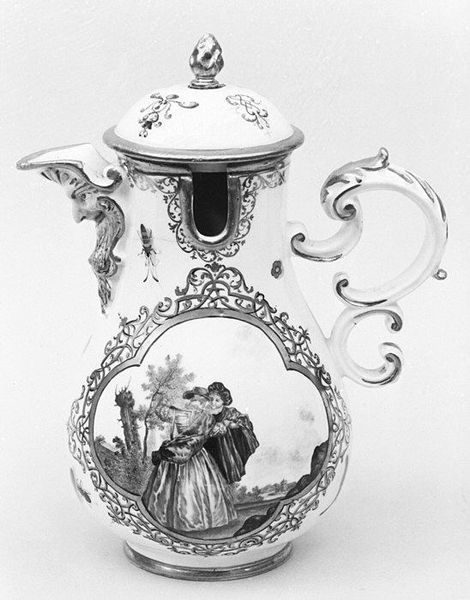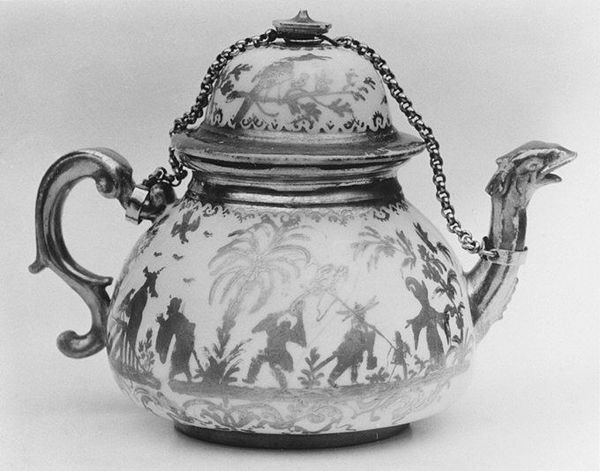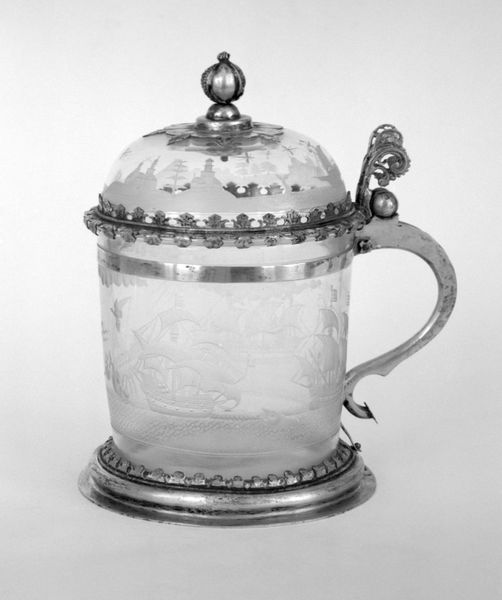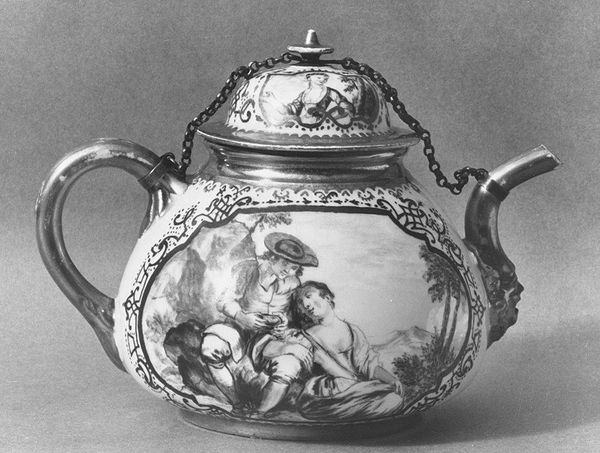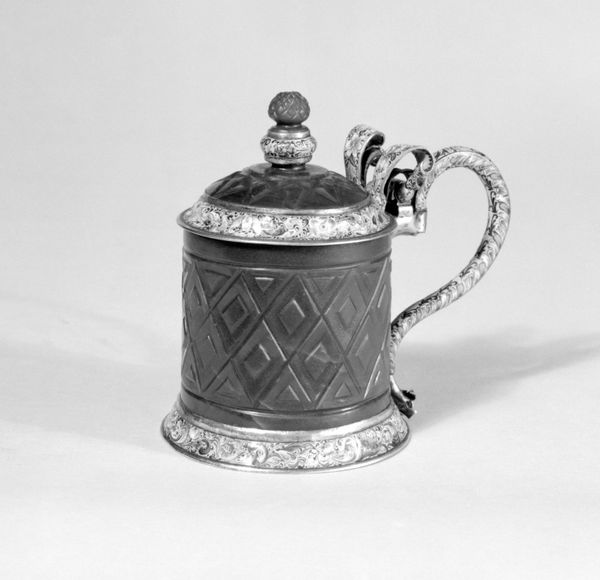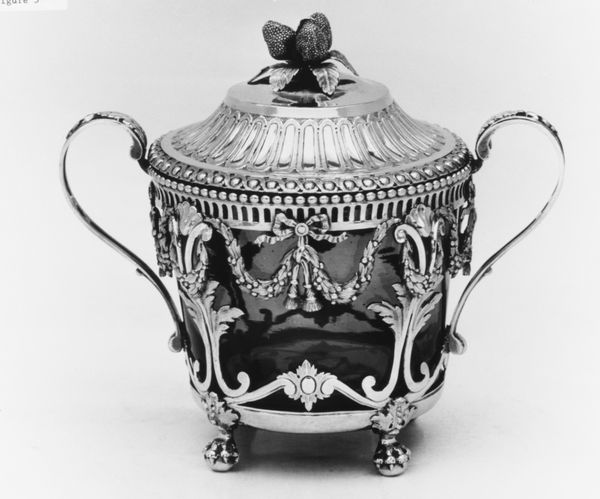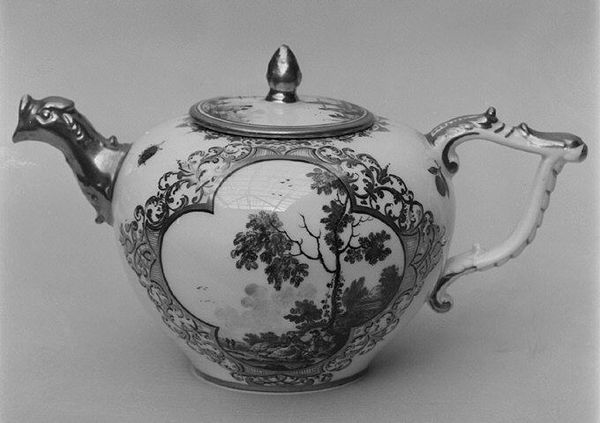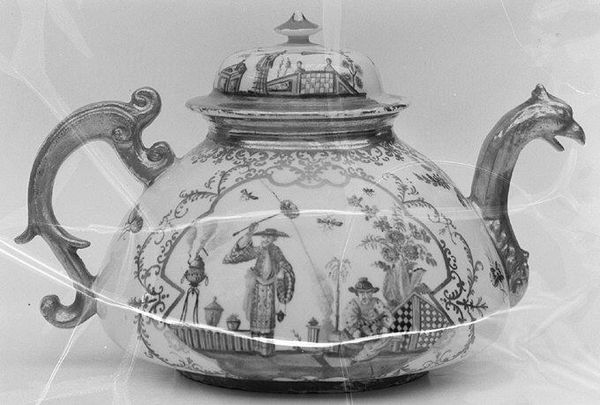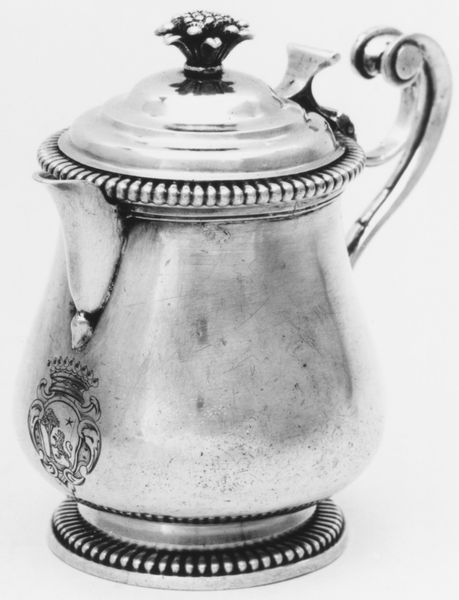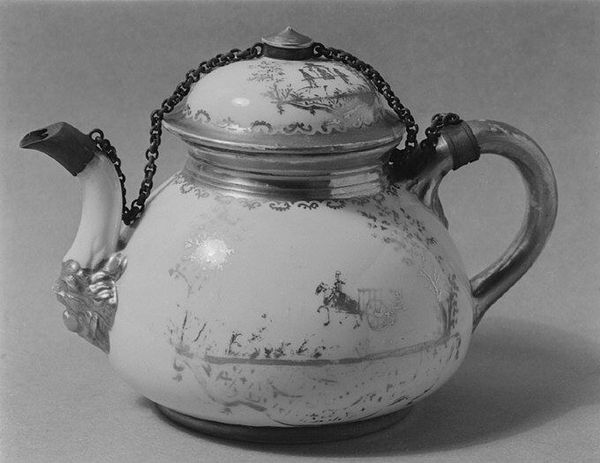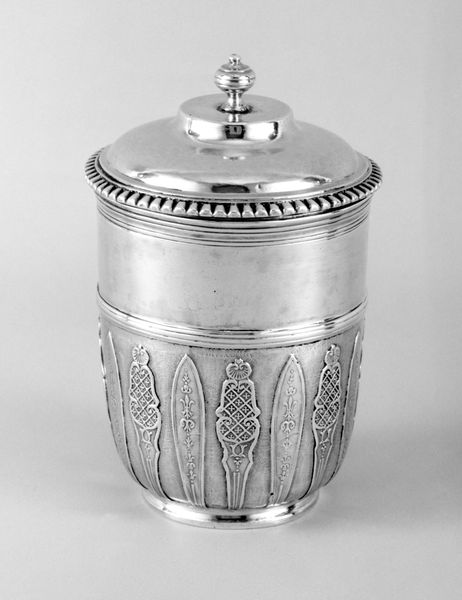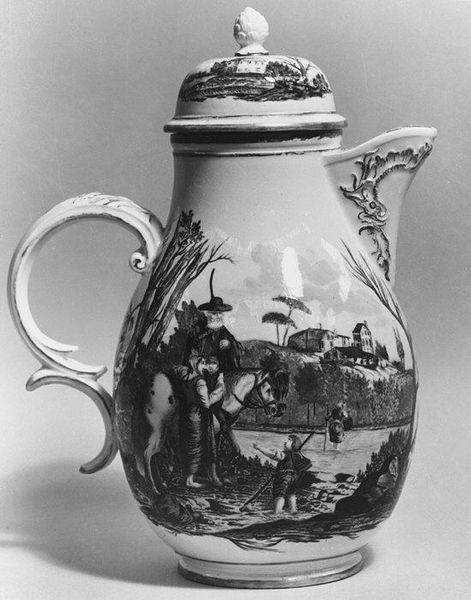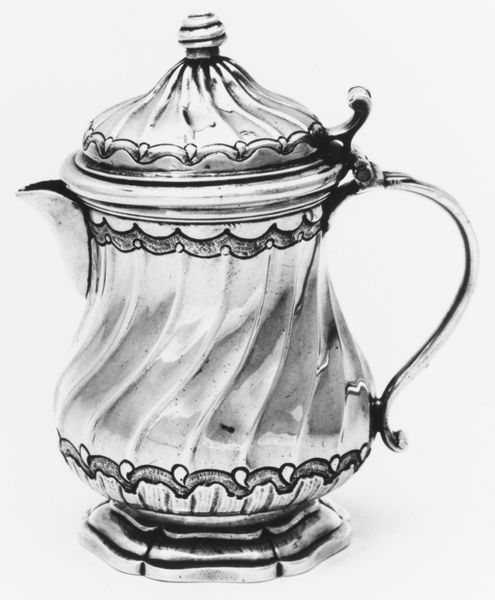
ceramic, porcelain, sculpture
#
ceramic
#
porcelain
#
sculpture
#
genre-painting
#
decorative-art
#
miniature
#
rococo
Dimensions: Height: 4 1/2 in. (11.4 cm)
Copyright: Public Domain
This porcelain teapot was made at the Meissen Manufactory, likely in the mid-18th century. Its monochrome decoration depicts an elegant, though faintly ludicrous, social scene. The scene creates meaning through visual codes that were very specific to that time. Meissen porcelain was the first high-quality porcelain to be produced outside of Asia, and so it was very fashionable among the European aristocracy. Tea drinking was also becoming a ritualized social practice in Europe, especially among the upper classes. It became associated with refinement, leisure, and global trade. This teapot is not merely a functional object, it is also a symbol of social status and taste. The scene depicted on its surface is a self-conscious display of aristocratic life. To truly understand this object, we might research the history of tea consumption in Europe, the development of the Meissen factory, and the social conventions of the 18th-century European aristocracy. Art is contingent on the social conditions of its time.
Comments
No comments
Be the first to comment and join the conversation on the ultimate creative platform.
